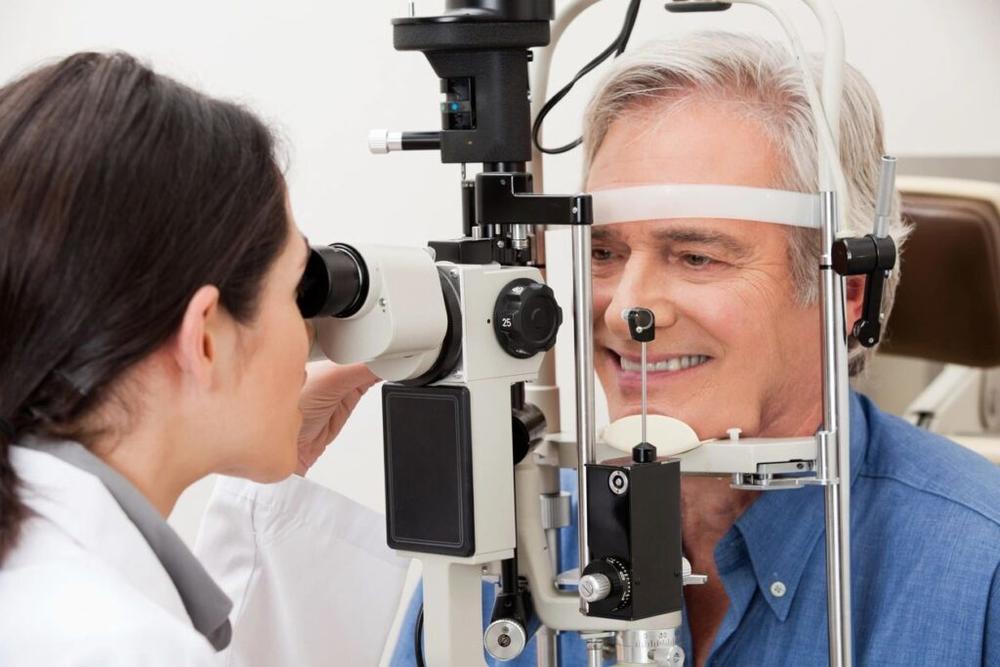
Section Branding
Header Content
U.S. representatives: Federal government should ensure timely cataract surgeries for older Georgians
Primary Content

ATLANTA — The federal government should ensure Medicare Advantage insurers Humana and Aetna cover cataract surgeries for older Georgians without delays or denials, Georgia’s Democratic congressional representatives said this week.
Aetna started requiring prior authorizations (PAs) for cataract surgeries in its Medicare Advantage plans across the country last year. After protests from doctors and others, Aetna rolled back the policy — except in Georgia and Florida. Humana, another large Medicare Advantage insurer, enacted a similar policy in August requiring prior authorizations for cataract surgeries in Georgia, Capitol Beat reported earlier this year.
“These PA policies put Georgia [Medicare Advantage] patients at greater risk of falls and accidents as their vision continued to deteriorate while they wait for surgery,” the six Democratic representatives said in a letter to Chiquita Brooks-LaSure, chief administrator for the Centers for Medicaid and Medicare Services (CMS), the federal health-care regulator.
“Georgia [Medicare Advantage] beneficiaries have faithfully paid their premiums every month and their access to sight-restoring surgery should not be delayed. They deserve to have the same access to sight-restoring surgery that Aetna and Humana … beneficiaries have in other states,” the representatives added.
This week’s letter from the Democratic representatives follows a similar letter sent to Brooks-LaSure in November by a group of Republican U.S. representatives from Georgia.
“Aetna’s and Humana’s prior authorization policies simply create obstacles to this common surgery for both patients and their physicians,” the five Republican legislators wrote.
Aetna and Humana representatives told Capitol Beat in September the prior authorization policies in Georgia are due to the companies’ pre-existing relationship with Florida-based iCare Health Solutions, a contractor that handles eye-care claims.
Georgia eye doctors say the policy is unnecessary.
“It’s a burden and a delay,” Dr. J. Chandler Berg, an Albany-area doctor and president of the Georgia Society of Ophthalmology, told Capitol Beat in September.
Prior authorization requirements are also a national concern. A report by the Office of Inspector General in the U.S. Department of Health and Human Services last April found around 13% of Medicare Advantage prior authorization denials were for services that would have been covered under traditional Medicare.
CMS recently issued a proposal to change its rules around prior authorization. If implemented, the new rule would require health insurers to streamline their prior authorization policies by 2026, along with other requirements. CMS will accept public comments on the rule until March 13, 2023.
The proposed CMS rule is similar to a bill that addresses PA requirements passed by the U.S. House earlier this year. That bill, called the Improving Seniors’ Timely Access to Care Act, is currently stalled in the Senate.
Older Americans can enroll in Medicare Advantage plans through private health insurance companies instead of obtaining health care through traditional Medicare. More than half of Georgians enrolled in Medicare, the federal insurance program for adults 65 and older, are members of private Medicare Advantage plans rather than the traditional Medicare program for their health insurance, according to the Kaiser Family Foundation.
The Democratic U.S. representatives who signed this week’s letter are David Scott, D-Atlanta, Henry “Hank” Johnson Jr., D-Stone Mountain, Lucy McBath, D-Marietta, Sanford Bishop Jr., D-Albany, Nikema Williams, D-Atlanta, and Carolyn Bourdeaux, D-Suwanee.
The Republican U.S. Representatives who sent a similar letter in November are Buddy Carter, R-Savannah, Barry Loudermilk, R-Cassville, Drew Ferguson, R-West Point, Rick Allen, R-Augusta, and Austin Scott, R-Tifton.
This story is available through a news partnership with Capitol Beat News Service, a project of the Georgia Press Educational Foundation.

